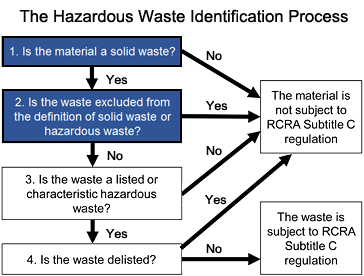5 Easy Facts About Reclaim Waste Explained
Table of ContentsWhat Does Reclaim Waste Do?All About Reclaim WasteReclaim Waste Can Be Fun For EveryoneFascination About Reclaim WasteThe Best Guide To Reclaim Waste
Explore the kinds, events, and forms of fluid waste. Domestic sewage waste refers to the waste and products from a property septic storage tank. This kind of waste is developed by people in residences, institutions, and other buildings. This only consists of septic containers that have a drainpipe area. The appropriate management and disposal of domestic sewage waste call for fluid waste to be transferred to a sewer treatment plant where the correct approaches and tools are related to detoxify and throw away waste.
Industrial waste frequently consists of prospective dangers, such as flammable materials or a combination of fluid and strong waste products, and requires a much more advanced and detailed disposal process. The disposal of business waste usually includes the filtration of waste before transport to guarantee safe and appropriate disposal. Hazardous waste is created from by-products and drainage of commercial procedures and production.
This kind of waste can not use the same sewage management transport or procedures as septic or industrial fluids. The hazardous waste management procedure calls for the evaluation and screening of fluid waste prior to it undergoes the disposal process (liquid waste disposal). Overflow waste is the liquid waste that originates from overflow and excess stormwater in extremely inhabited areas or cities
Overflow waste can create contamination and flooding otherwise handled correctly. Discover more regarding drain cleaning and waste administration. Making certain appropriate waste management can avoid catastrophes and minimize environmental damage. Both people in property settings and experts in industrial or production markets can take advantage of understanding the procedures and guidelines of liquid waste monitoring.
Some Known Details About Reclaim Waste
Call PROS Services today to discover our waste administration and disposal solutions and the correct ways to care for the fluid waste you create.
(https://www.slideshare.net/leonaube33101)This supposed 'wastewater' is not only an important resource but, after treatment, will be released to our land, waterways or the ocean. Utilized water from toilets, showers, baths, kitchen sinks, washings and industrial procedures is recognized as wastewater.

water made use of to cool equipment or tidy plant and devices). Stormwater, a type of wastewater, is runoff that streams from farming and city areas such as roofing systems, parks, gardens, roadways, courses and gutters into stormwater drains, after rainfall. Stormwater flows unattended directly to regional creeks or rivers, ultimately reaching the sea.
Reclaim Waste - Questions
In Queensland, many wastewater is treated at sewage treatment plants. Wastewater is transported from domestic or industrial websites with a system of sewage systems and pump stations, referred to as sewage reticulation, to a sewage treatment plant. Neighborhood governments construct, preserve and operate most sewer treatment plants. Operators are certified under the Environmental Management Act 1994 to discharge cured wastewater at an acceptable ecological requirement right into waterways.
The Department of Natural Resources suggests city governments regarding handling, operating and maintaining sewage systems and treatment plants. In unsewered locations, city governments may need householders to set up individual or family sewage therapy systems to deal with residential wastewater from toilets, kitchen areas, restrooms and washings. The Division of Natural Resources authorises making use of family systems when they are proven to be reliable.
In some brand-new neighborhoods, therapy of some stormwater to remove trash, sand and crushed rock has actually begun making use of gross toxin catches. Wastewater therapy takes place in 4 phases: Gets rid of solid issue.
Wastewater then moves right into big containers where solids resolve and are gotten rid of as sludge. Oil and residue are skimmed from the surface. Makes use of tiny living organisms called micro-organisms to break down and eliminate continuing to be dissolved wastes and fine bits. Micro-organisms and wastes are incorporated in the sludge. Eliminates nitrogen and phosphorus nutrients that could trigger algal flowers in our waterways and endanger aquatic life.
Unknown Facts About Reclaim Waste
Nutrient removal is not available at all sewer treatment plants since it needs costly specialised devices. It is becoming extra usual in Queensland. Clear liquid effluent generated after treatment may still consist of disease-causing micro-organisms. If this effluent is launched right into rivers such as rivers or the sea, the micro-organisms will eventually pass away out.

This generally suggests wastewater has to be treated or contaminants eliminated before it can be discharged to rivers. Most wastewater flows into the sewerage system. Under the Act, city governments administer approvals and licences for environmentally pertinent activities (ERAs) involving wastewater launches that might have a local influence. The division provides authorizations and permits to Periods involving wastewater releases that might have a regional or statewide impact.
What Does Reclaim Waste Do?
Or else, examples are taken for research laboratory evaluation. Usually lots of examinations are needed to develop the home levels of each of the various toxins such as oils, hefty steels and chemicals in water. Tracking gives factual details about water top quality and can confirm that licence problems are being satisfied. The information gotten via monitoring supplies the basis for making water quality choices.